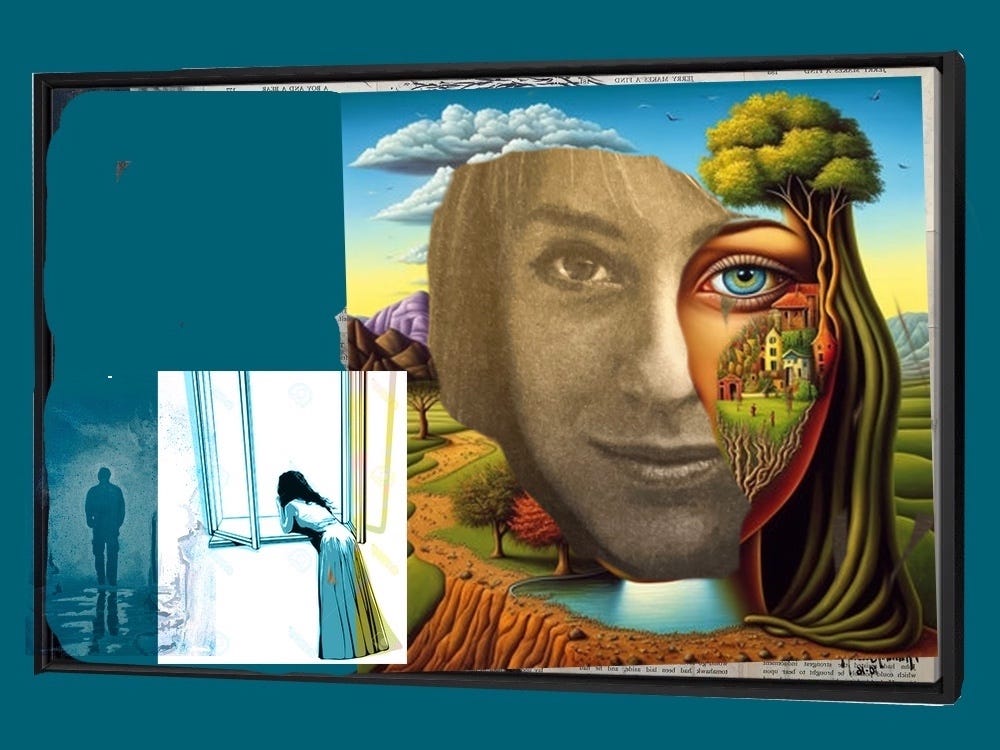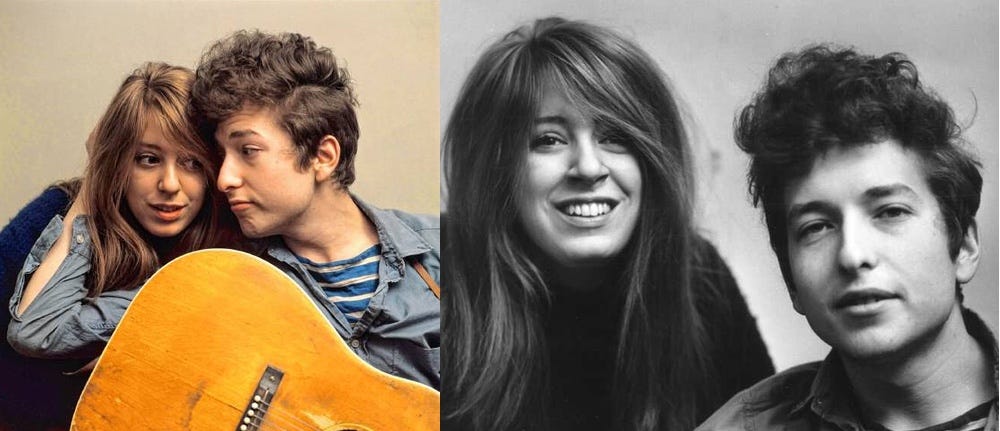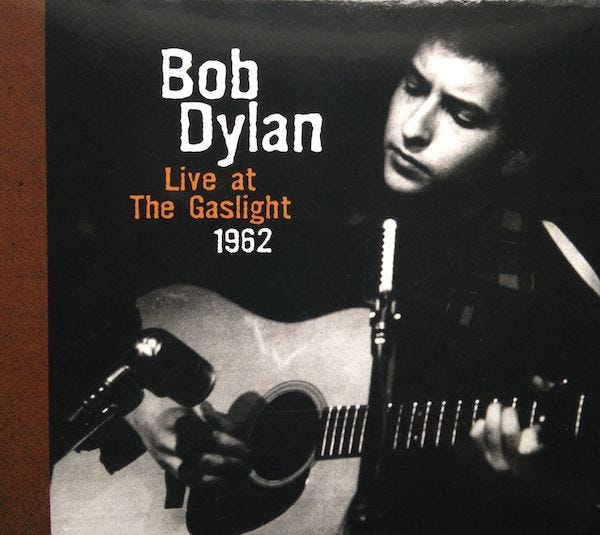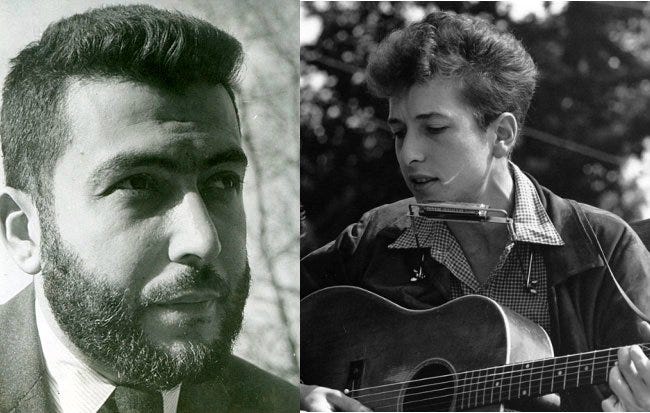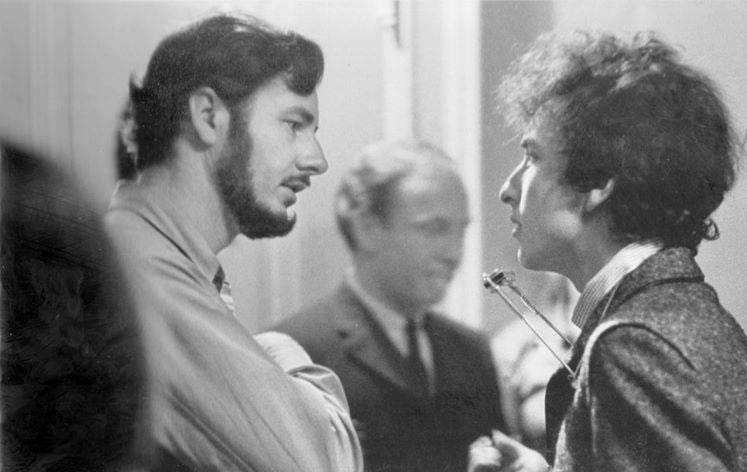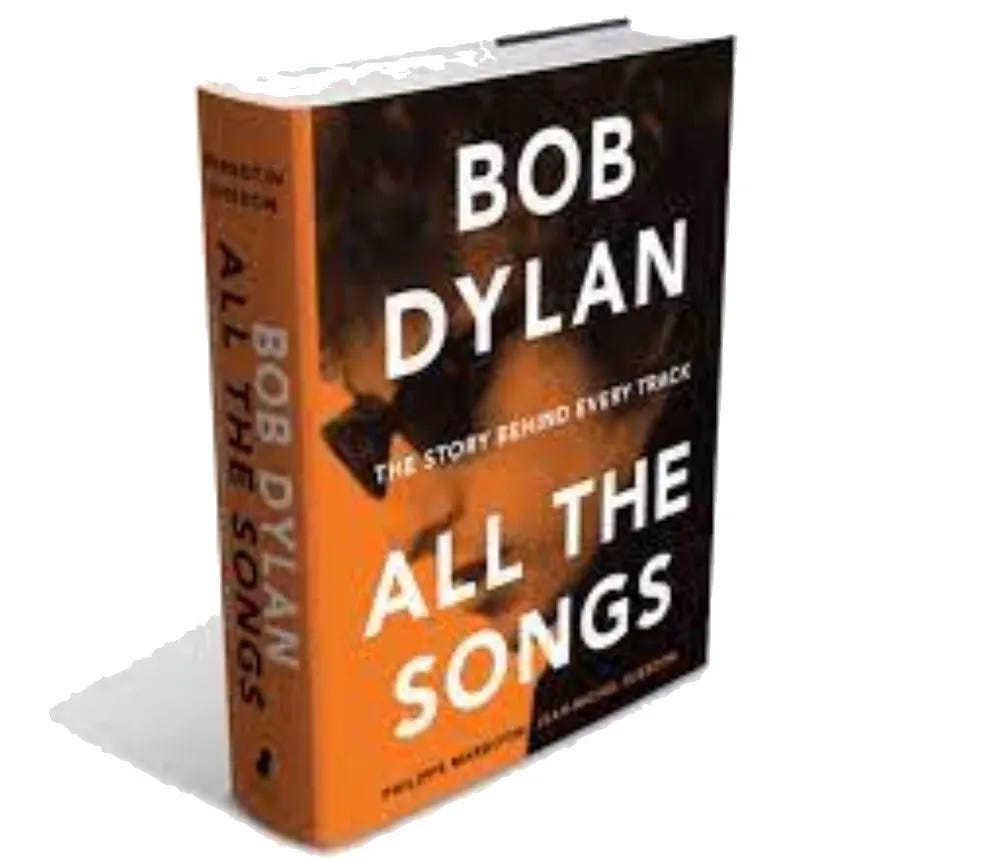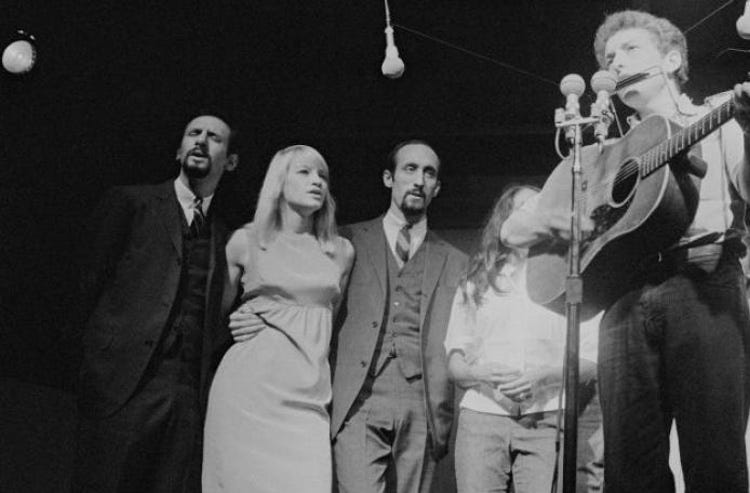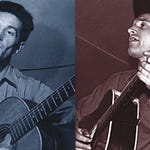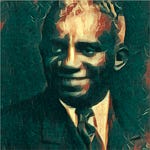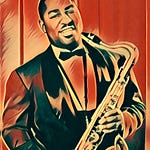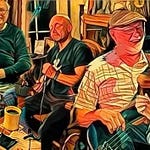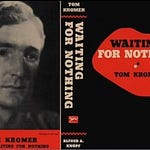Bob Dylan was 20 years old, lovesick and lonely in 1962. His beautiful girlfriend, Suze Rotolo, had prolonged her stay in Italy indefinitely, and Bobby wouldn’t see her again for almost another year.
Consequently, Suze figured prominently in a number of early Dylan verses, including some of his best love/angst songs of the period, including "Tomorrow Is a Long Time,” "One Too Many Mornings" and "Boots of Spanish Leather.”
Above all, the Suze song was Bob’s classic and most covered creation of the period: “Don’t Think Twice, It’s All Right.”
When Dylan first performed the song publicly — 61 years ago this week at New York’s Gaslight Cafe — Suze was already gone. For four months already, she had been away taking art classes at Italy’s University of Perugia.
Bob’s bitterness over her long absence is evident throughout the song’s lyrics. In fact, Dylan later told critic Nat Hentoff that the song wasn’t a love song at all, but rather “a statement that maybe you can say to make yourself feel better ... as if you were talking to yourself.”
Enter Paul Clayton
The melody of the song was greatly influenced by the tune of a public domain traditional song called "Who's Gonna Buy Your Chickens When I'm Gone,” which Bob learned from fellow folkie Paul Clayton. (Clayton himself had recorded it two years earlier, though he tweaked it to be "Who's Gonna Buy You Ribbons When I'm Gone?”)
Now, legend has it that Clayton had an unrequited crush on the young Dylan, but those tender feeling didn’t stop him (or at least didn’t stop his music publisher) from suing Bob for plagiarism.
In addition to a similar melody, Dylan’s song also borrowed a few lines — some word-for-word, others slightly altered — from the Clayton recording, notably, the opening words: “It ain’t no use to sit and wonder why.” Most of the subsequent verses also open with “It ain’t no use to….”
As Phillippe Margotin and Jean-Michel Guesdon note in their authoritative Bob Dylan: All the Songs, Paul’s lawsuit resulted in “a generous compensation for Clayton shortly before the two folksingers, reconciled, toured together in February 1964.”
(Incidentally, another of Clayton’s original lines — "So I'm walkin' down that long, lonesome road, babe, where I'm bound, I can't tell” — Dylan subbed out in subsequent recordings with "So long, honey babe, where I'm bound, I can't tell.”)
Spreading the Word
In 1963, Columbia Records released “Don’t Think Twice,” first on the Freewheelin’ Bob Dylan album, then as the B side of the single of “Blowin’ in the Wind.” However, neither of those efforts really resonated with the record-buying public.
But then that same year, Peter, Paul and Mary came into Bob’s life. Dylan's manager, Albert Grossman, also managed PP&M, and Grossman started offering his songs to them and to other artists as they headed into recording studios.
"Don't Think Twice, It's Alright" was one of three Dylan songs Peter, Paul and Mary picked up for their third album, In the Wind (the other two being “Blowin’ in the Wind” and "Quit Your Lowdown Ways").
Released as a single, the trio’s recording of “Don’t Think Twice” reached No. 9 on the Billboard Hot 100 and and No. 2 on its Easy Listening charts. That disc not only popularized the song but also introduced many listeners around the world to a new name: “Bob Dylan.”
Our Take on the Tune
This Dylan classic has been in the Floodisphere forever — Roger and Charlie used to sing it together a half century ago — but only recently has it made a move to be in the regular repertoire.
That’s when Randy stepped to sing his signature harmonies and Danny and Sam started doing double duty on the solos.



